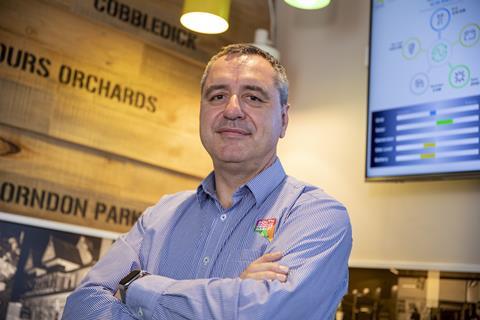Increased costs contribute to 20 per cent loss in farmgate prices for South Australian growers in 2023

New data from the Horticulture Coalition of South Australia (HCSA) has revealed a significant 21.6 per cent reduction in farmgate prices for South Australian growers in the 2022/23 financial year (July 2022 to June 2023).
Despite increased costs for labour, power, packaging, fuel/transport, and other essentials, the average prices of key produce lines have seen a notable decline per kilogram. This includes tomatoes with a decrease of $1.03/kg, cucumbers which reduced by A$1.06 each and mushrooms down by A$1.09/kg.
Angelo Demasi, president of the HCSA, expressed concern, stating, “Farmgate and wholesale prices have regressed over the past five years, while supermarket chains maintain gross margins and continue to exert pressure on producers. It’s time for supermarkets to reassess their costs and compensate growers fairly for their efforts.”
The data shows, that although SA growers saw farmgate prices increase between the 2020 and 2022 financial years due to Covid and floods, the average farmgate price in 2023 for fruit and vegetables is back down to A$0.98 per kg while volumes produced increased to 1,181 tonnes.
Demasi cautioned that persistent reductions in farmgate prices by major supermarkets could lead to a devastating 30 per cent exit of the horticultural sector within the next five years. According to Damasi this would not only jeopardise the livelihoods of local farmers but also pose a significant threat to the availability of homegrown produce in Australia.
Demasi called for a collaborative effort from stakeholders across the supply chain to address these challenges and ensure the long-term sustainability of Australia’s horticultural sector.
“The South Australian horticultural industry contributes A$1.1bn in farmgate sales to the South Australian economy and is an industry that needs to be protected from the duopoly that exists in this country,” he said. “South Australia is fortunate to have a share of independent supermarkets that play a pivotal role in the South Australian horticulture and food industry. However, this year, we also experienced an influx of interstate fresh produce into South Australia, which contributed to the reduced prices.”
To address the issue, the HCSA called for the implementation of a mandatory code for supermarkets, akin to the regulation already in place for wholesale markets. The coalition urged supermarkets to reduce their margins on fresh produce, providing crucial support to the industry and ensuring fair pricing for growers.
Ausveg SA chief executive, Jordan Brooke-Barnett said results were concerning for both the industry and broader community.
“At a time where the duopoly are posting billion dollar profits it is unconscionable that producers are expected to produce for meagre returns while, according to our industry data, the supermarkets charge an average of 300 per cent mark ups on fresh produce staples,” said Brooke-Barnett.
“The current market conditions are unsustainable, with farmers losing out and many likely to go out of business while consumers are suffering at the checkout with these pricing strategies.
“Ausveg SA hopes that consumers and farmers of Australia can join to put pressure on the big two to provide a fairer deal to consumers and the producers.”
This new data comes as the Australian government has directed the Australian Competition and Consumer Commission (ACCC) to investigate pricing and competition in the supermarket sector.



